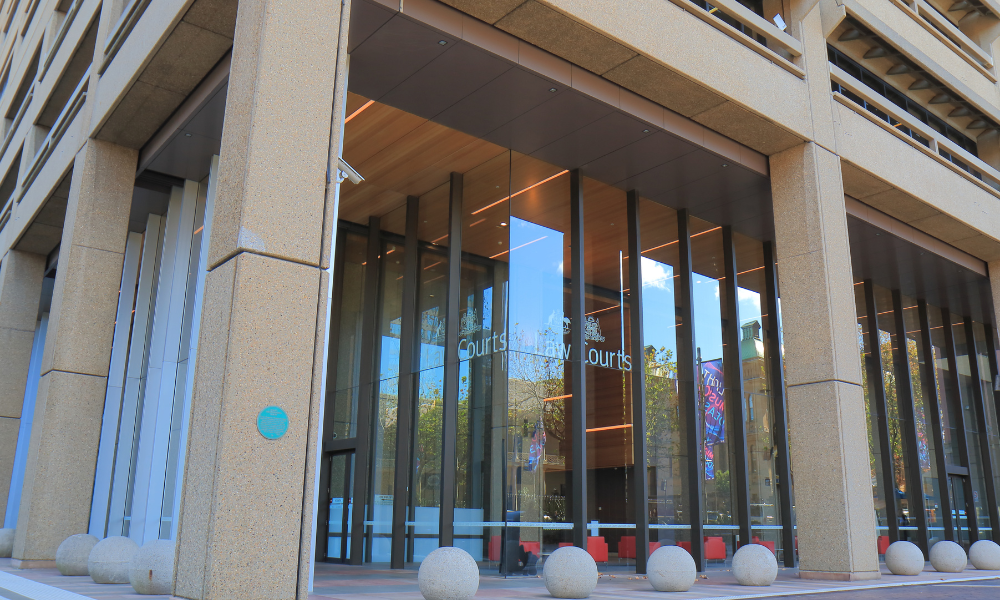
The court found 'substantial truth' to the allegations of bullying and assault.

The Federal Court has dismissed the defamation cases that Ben Roberts-Smith brought against The Sydney Morning Herald, The Age and The Canberra Times.
Decorated soldier Ben Roberts-Smith has brought three defamation actions against the three newspapers, which have been heard together. In a landmark 736-page decision, Justice Anthony Besanko of the Federal Court dismissed all three defamation actions.
Roberts-Smith was a member of the Special Air Services Regiment (SASR) between 2003 and 2013, and he undertook six tours of Afghanistan during that period. He has received several awards and medals, including the Medal for Gallantry in 2006, the Victoria Cross in 2011 and a Commendation for Distinguished Service in 2014.
The defamation proceedings relate to articles published in newspapers and websites of The Sydney Morning Herald, The Age, and The Canberra Times between June and August 2018. The proceedings against the Sydney Morning Herald and The Age involve six articles, and the proceedings against The Canberra Times involve four articles.
The Sydney Morning Herald published articles entitled "SAS's Day of Shame" and "Troops kept 'kill board': SAS's Day of Shame". The Age published an article in its newspaper entitled "SAS's Day of Shame" and "Did the SAS kick a cuffed man off a cliff?" The Sydney Morning Herald, The Age, and The Canberra Times also published on each of their websites an article entitled "Abdul's brother went out to buy flour. He never came home."
These articles referred to a soldier known as "Leonidas" and contained allegations that an Afghan detainee was kicked off a cliff by Leonidas and subsequently executed.
Fairfax Media, the publisher of The Sydney Morning Herald, also published in The Sun Herald newspaper and website an article entitled "Special forces rookie 'blooded' by executing an unarmed man". The Sunday Age newspaper published an article entitled "Blood Ties". The Age website also published an article entitled "Special Forces rookie 'blooded' by executing unarmed man". The Canberra Times newspaper and website published an article entitled "S.A.S. rookie told to shoot unarmed man".
These articles also referred to a soldier known as "Leonidas". They contained several allegations, including an allegation concerning the execution of an elderly, unarmed Afghan in circumstances in which a "rookie" was "blooded" The articles also referred to another killing involving a prisoner with a prosthetic leg and repeated allegations that a prisoner had been kicked off a cliff.
The Sydney Morning Herald newspaper published articles entitled "War hero fires back over abuse claims" and "Beneath the bravery of our most decorated soldier." The Age newspaper published articles entitled "The cracks in a war hero's façade", "Beneath the bravery", and "Beneath lauded soldier's bravery". The Canberra Times website also published an article entitled "Beneath the bravery of our most decorated soldier". These articles refer to the Roberts-Smith by name and contain many allegations concerning his conduct as a soldier in Afghanistan and an allegation of domestic violence.
Roberts-Smith alleged that many defamatory imputations concerning him were made, including allegations that he murdered or was complicit in and responsible for the murder of Afghan males who were under control or containment. The newspapers also imputed that Roberts-Smith assaulted a woman in a hotel room in Canberra. Additionally, there were also allegations that he bullied an Australian soldier and made a threat to another soldier.
Roberts-Smith alleged that the imputations concerning him are "of the most serious kind." He asserted that he is entitled to a substantial award of damages in each of the three defamation proceedings. On the other hand, newspaper publishers raised the defences of justification or substantial truth and contextual truth.
Justice Besanko of the Federal Court found "substantial truth" in the allegations that Roberts-Smith, while a member of the SASR, murdered an unarmed and defenceless Afghan civilian by kicking him off a cliff and procuring the soldiers under his command to shoot him. The court affirmed that there is a substantial truth that he broke the moral and legal rules of military engagement and disgraced his country and the Australian army by his conduct.
Justice Besanko found substantial truth in the allegation that Roberts-Smith had engaged in a bullying campaign against a small and quiet soldier, which included threats of violence. He also found a contextual truth to the imputation that Roberts-Smith threatened to report a solder to the International Criminal Court for firing at civilians unless he provided an account of a friendly fire incident consistent with Roberts-Smith's version of the event.
Furthermore, Justice Besanko said there is substantial truth in the allegation that during Roberts-Smith's 2010 deployment in Afghanistan, he bashed an unarmed Afghan in the face with his fists and in the stomach with his knee and, in so doing, alarmed two patrol commanders to the extent that they ordered him to back off. The court also found that as a patrol commander in 2012, Roberts-Smith authorised the assault of an unarmed Afghan who was held in custody and posed no threat.
Justice Besanko upheld the defence of contextual truth concerning the imputation that Roberts-Smith committed an act of domestic violence against a woman in the Hotel Realm in Canberra. Justice Besanko also affirmed the imputation that the Roberts-Smith is a hypocrite who publicly supported a domestic violence campaigner when he abused a woman in private.
As a result of the findings of substantial and contextual truth concerning the imputations published by the newspapers, Justice Besanko dismissed all three defamation charges.